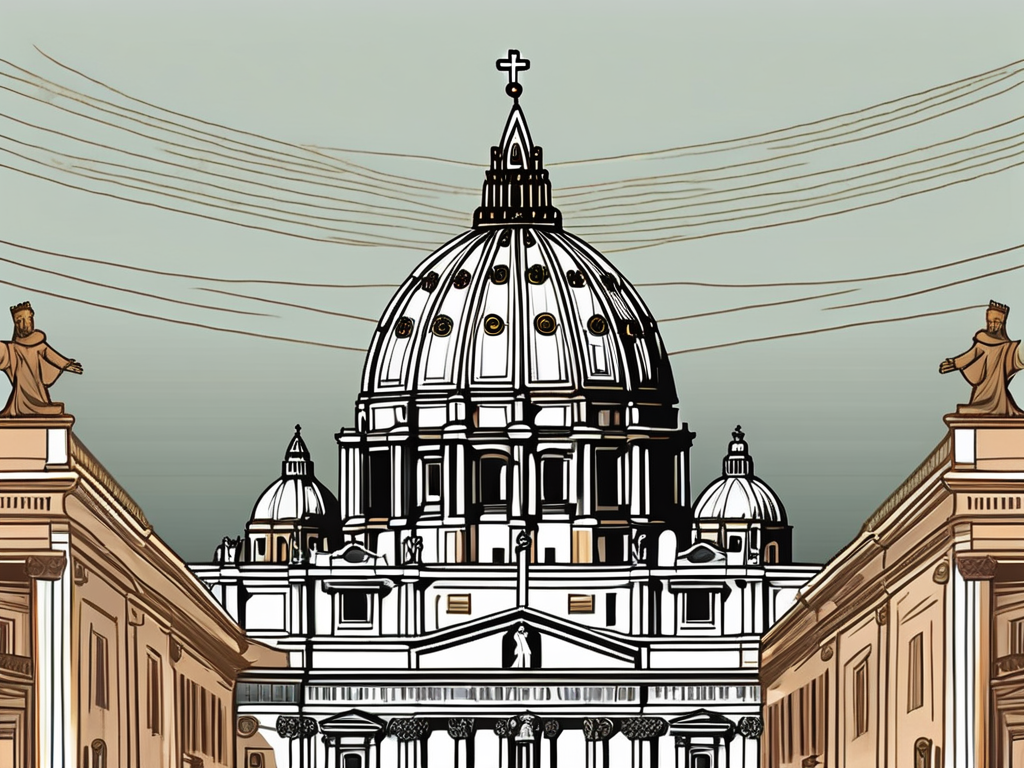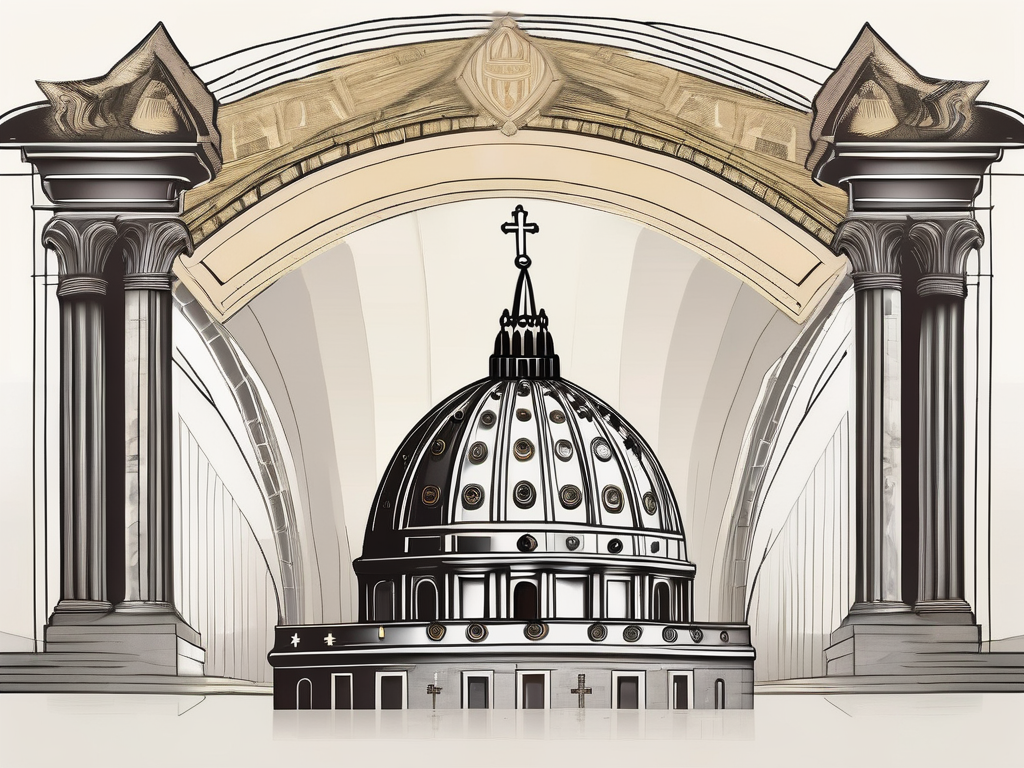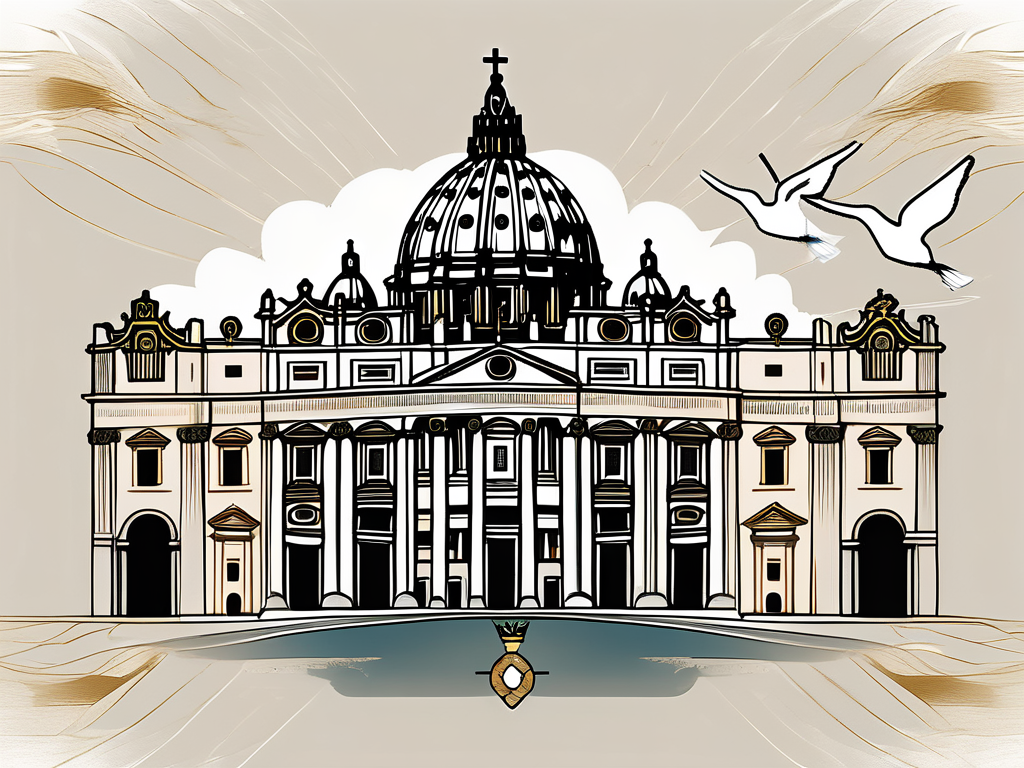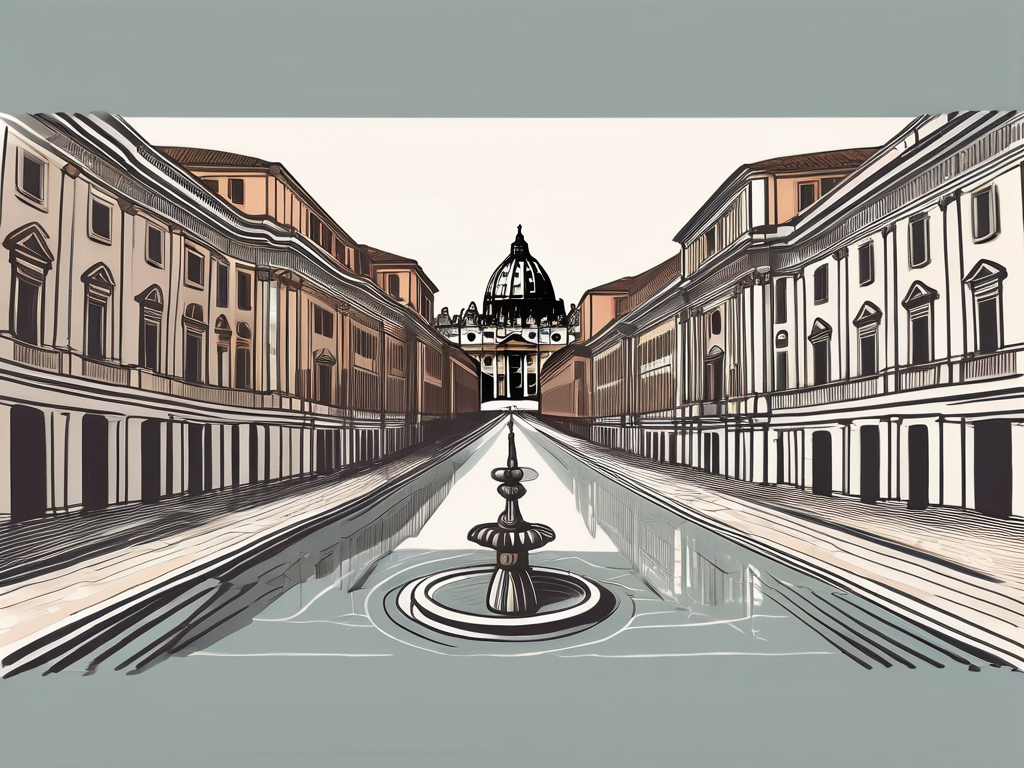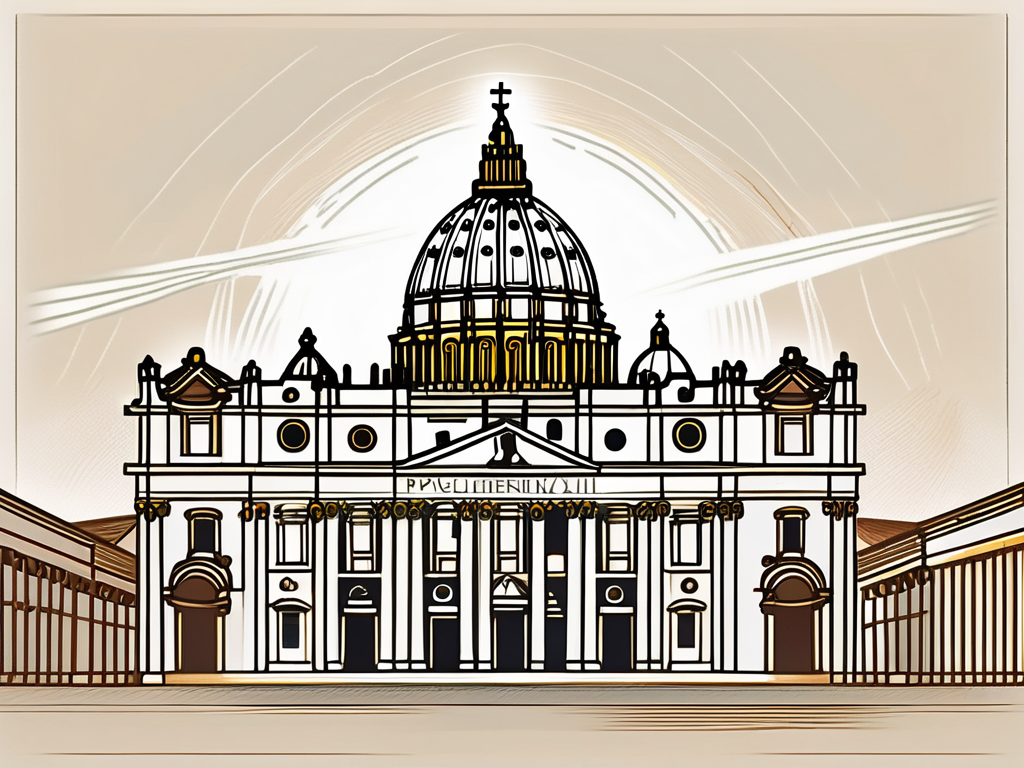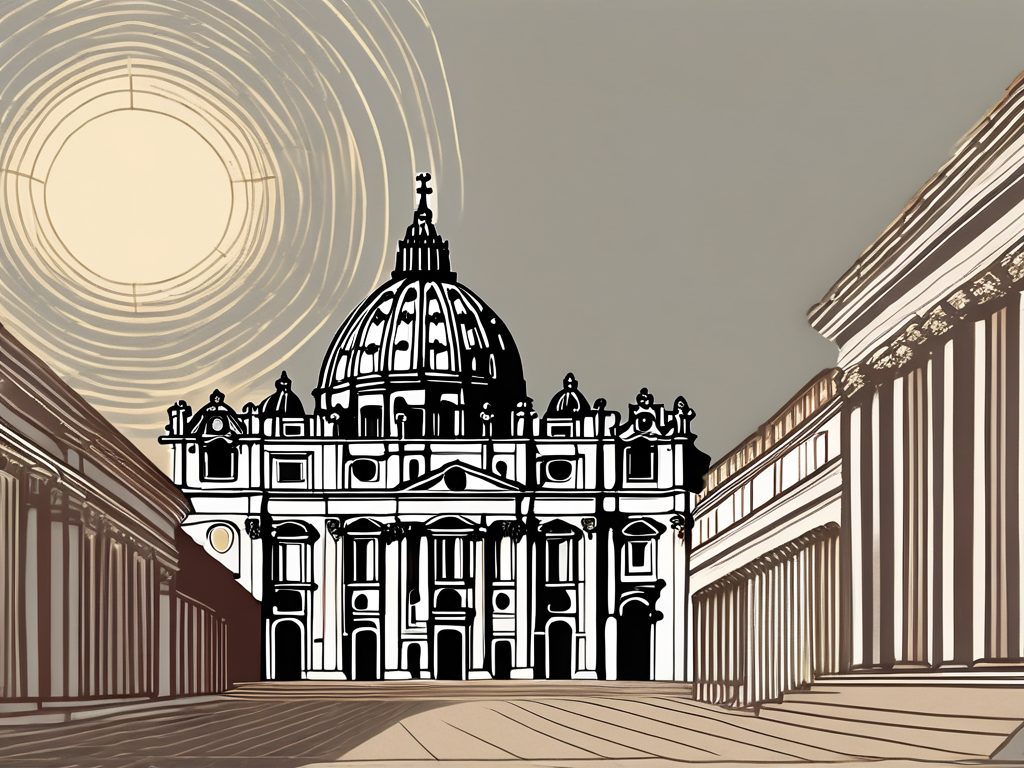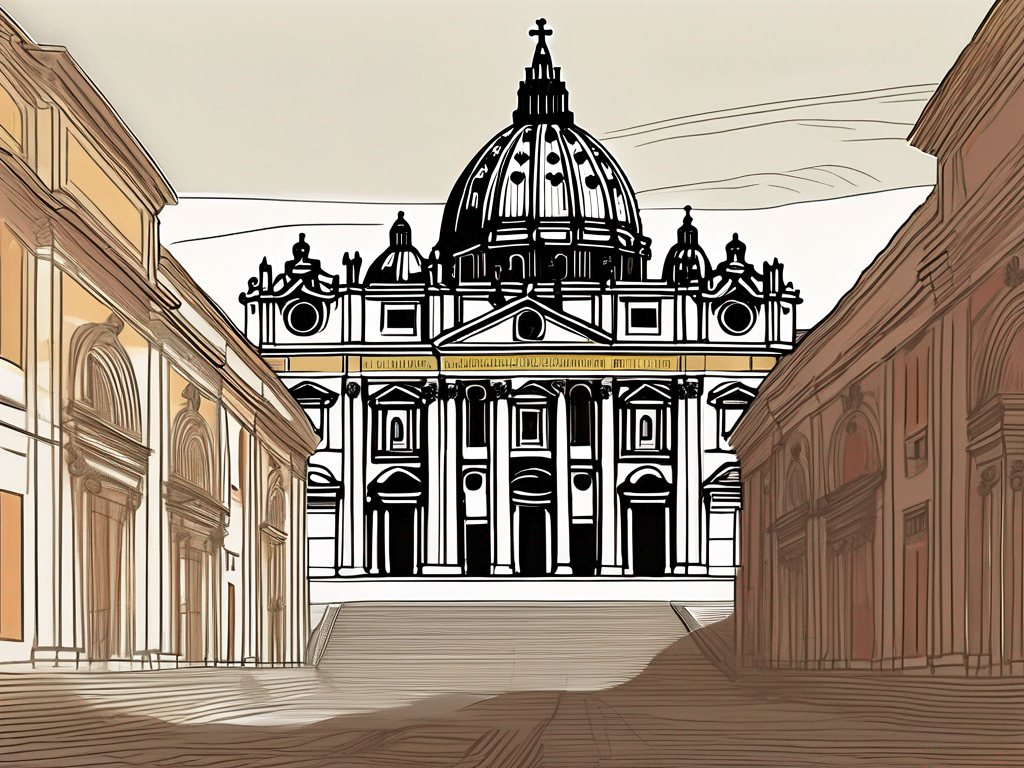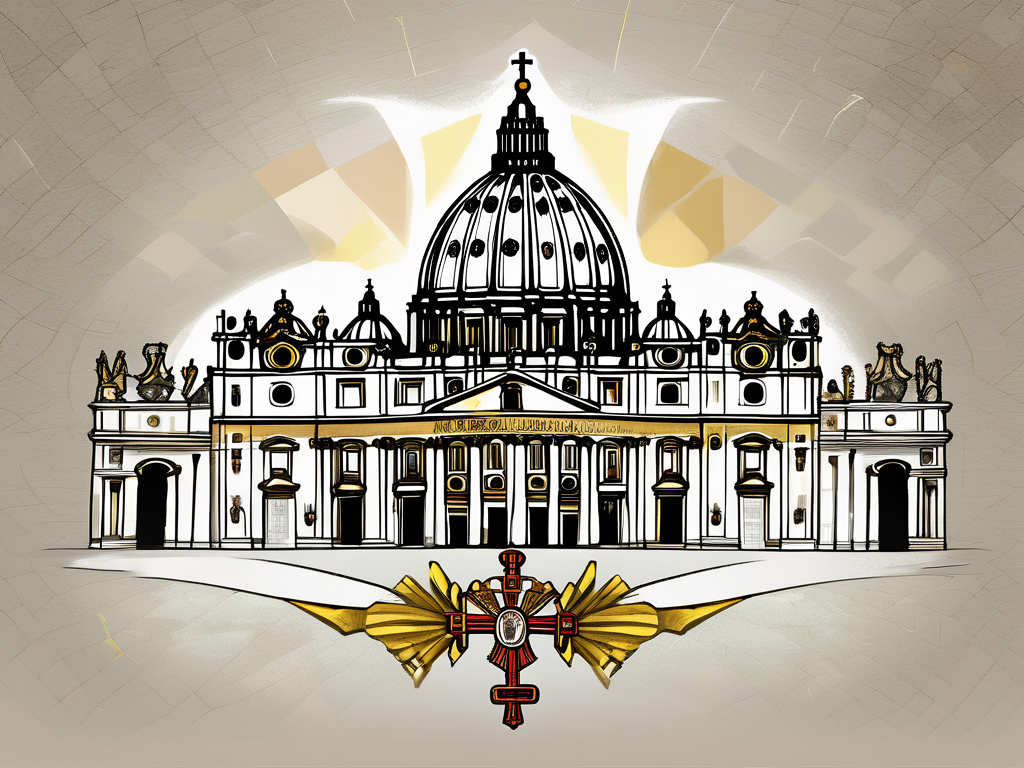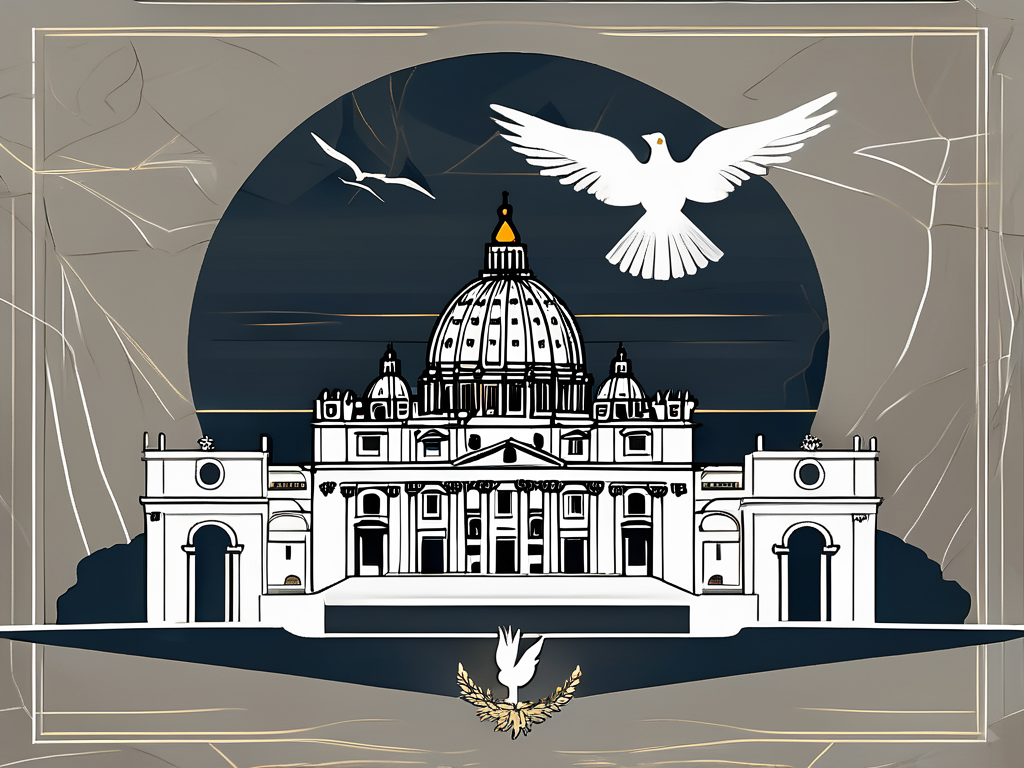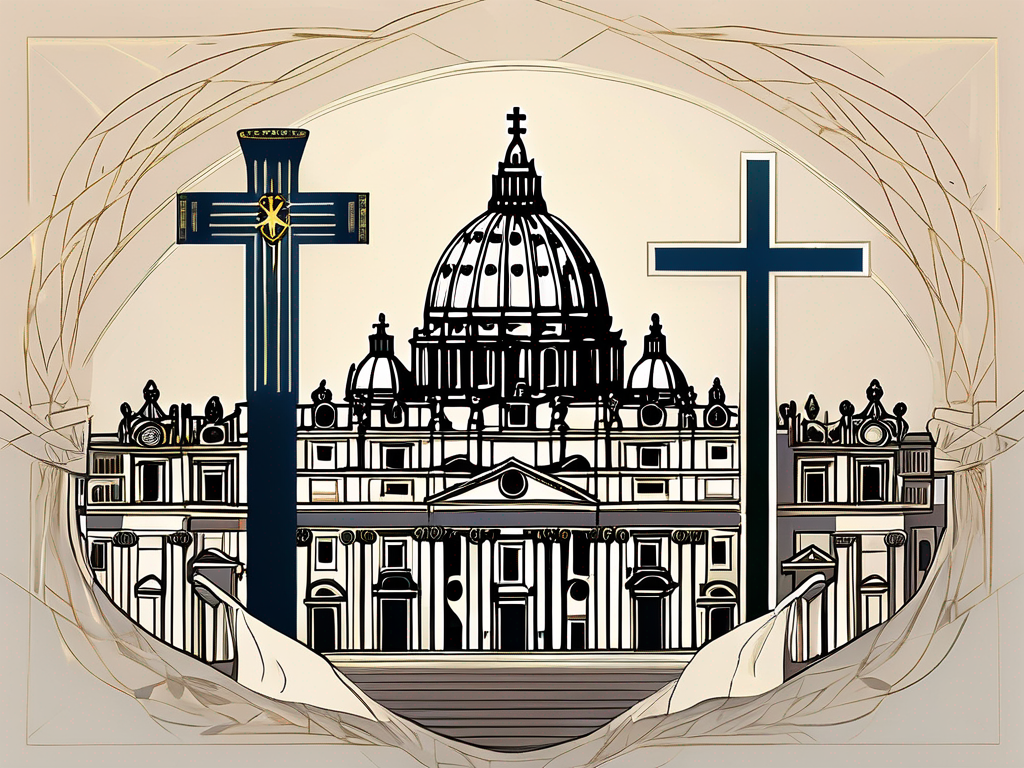Pope Clement V, whose birth name was Bertrand de Got, led a fascinating life filled with triumphs, controversies, and lasting contributions to the Catholic Church. From his humble beginnings to his papal reign and beyond, let’s delve into the remarkable journey of this influential figure.
Early Life and Education of Bertrand de Got
Born into a family of minor nobility in the region of Aquitaine, France, Bertrand de Got’s destiny was anything but ordinary. His birth and family background played a significant role in shaping his path towards the papacy.
From an early age, Bertrand exhibited a deep religious inclination, which set him apart from his peers. He possessed an insatiable thirst for knowledge and an unwavering dedication to his spiritual convictions.
Birth and Family Background
Bertrand de Got entered the world in 1264, surrounded by a loving and devout Catholic family. His parents, Pierre de Got and Béatrix de Montaner, instilled in him the values of faith, humility, and compassion. Growing up in a household deeply rooted in Catholic traditions, Bertrand was exposed to the teachings of the Church from a young age.
The de Got family, though not of high nobility, held a respected position in Aquitaine. They were known for their generosity towards the less fortunate and their unwavering commitment to the Catholic faith. This environment provided Bertrand with a strong foundation of moral values and a sense of duty towards his community.
As a child, Bertrand often accompanied his parents to church, where he would listen attentively to the sermons of the local priests. He was captivated by the power of the spoken word and the profound impact it had on the congregation. These early experiences planted the seeds of his future calling.
Education and Early Religious Inclinations
Given his status as a nobleman, Bertrand was afforded excellent educational opportunities. His parents recognized his intellectual potential and spared no expense in providing him with the best education available.
At a young age, Bertrand was enrolled in a prestigious Catholic school, where he received a well-rounded education. His studies encompassed a wide range of subjects, including Latin, philosophy, mathematics, and theology. It was during his theological studies that Bertrand’s passion for the Church truly blossomed.
Under the guidance of renowned theologians and scholars, Bertrand delved deep into the intricacies of Catholic doctrine. He immersed himself in the works of prominent theologians such as Saint Augustine and Saint Thomas Aquinas, seeking to unravel the mysteries of faith.
As Bertrand grew older, his unwavering devotion to the Church became evident. He devoted countless hours to prayer and reflection, seeking a deeper connection with his faith and contemplating his life’s purpose. His spiritual journey led him to explore various monastic traditions, drawing inspiration from the lives of saints and hermits who had dedicated themselves entirely to God.
Throughout his education, Bertrand’s exceptional intellect and unwavering commitment to his studies earned him the admiration of his teachers and peers. His ability to grasp complex theological concepts and articulate them with clarity and conviction set him apart as a promising young scholar.
Little did Bertrand know that his insatiable thirst for knowledge and his unwavering dedication to his spiritual convictions would eventually lead him down a path that would forever change the course of history.
Ascension to Papacy as Pope Clement V
After years of honing his spiritual and intellectual skills, Bertrand’s momentous rise to power occurred in 1305 when he was elected as the 196th Pope of the Catholic Church, taking on the moniker Pope Clement V.
As news of his election spread throughout the Christian world, the faithful rejoiced at the selection of this learned and devout man. Pope Clement V’s reputation preceded him, and the anticipation of his papacy was palpable.
The conclave, filled with cardinals from various corners of the world, gathered to elect the new leader of the Catholic Church. After days of intense deliberation and prayer, the white smoke billowed from the Sistine Chapel chimney, signaling the selection of a new pontiff. The bells of St. Peter’s Basilica rang out, announcing the birth of a new era under the leadership of Pope Clement V.
Election and Papal Coronation
The election of Pope Clement V marked a pivotal moment in church history. This humble man, known for his intellect and compassion, assumed the highest position within the Catholic hierarchy.
With great reverence, Pope Clement V embraced his new responsibility and solemnly accepted the papal tiara on his head. The weight of the centuries-old tradition and the spiritual burden of guiding millions of souls rested upon his shoulders.
Amidst the grandeur of the coronation ceremony, he carried himself with humility and grace, never forgetting the higher purpose for which he had been chosen. The crowd gathered in St. Peter’s Square marveled at the sight of their new spiritual leader, his presence radiating a sense of calm and serenity.
As the ceremony concluded, Pope Clement V delivered his first papal blessing, his voice resonating with authority and compassion. The faithful, moved by his words, felt a renewed sense of hope and unity.
Controversies and Challenges of the Papacy
However, Pope Clement V’s papacy was not without its tribulations. He faced numerous controversies and challenges throughout his reign, testing his mettle and resolve.
One of the most significant challenges Pope Clement V faced was the ongoing conflict between the Church and the secular powers. The balance of power between the papacy and the monarchs of Europe was a delicate dance, often resulting in clashes and power struggles.
Amidst these trying circumstances, Pope Clement V proved himself to be an astute and compassionate leader. He approached each situation with wisdom and discernment, valiantly navigating the complexities of a rapidly changing world.
Furthermore, Pope Clement V was faced with the daunting task of addressing the growing concerns of the Inquisition. As accusations of heresy and witchcraft spread, he sought to strike a balance between upholding the Church’s teachings and ensuring justice and fairness for all.
Despite the controversies and challenges that came his way, Pope Clement V remained steadfast in his commitment to the Church and its followers. His unwavering faith and dedication to the principles of love, mercy, and justice served as a guiding light for the faithful during troubled times.
Major Decisions and Policies
During his tenure, Pope Clement V made several significant decisions and implemented policies that would leave an enduring impact on both the Church and society at large.
The Suppression of the Knights Templar
One of the most memorable actions taken by Pope Clement V was the suppression of the Knights Templar. This controversial move shook the foundations of the Church, as the Templars had long been revered as a symbol of power and influence.
Through careful consideration and consultation with his advisors, Pope Clement V made the difficult decision to dissolve the order. While this decision sparked debates and controversies, it also paved the way for future reforms within the Church hierarchy.
The Move to Avignon
Another momentous decision made by Pope Clement V was the relocation of the papal seat to Avignon, a city in southern France. This move allowed the pope to establish a closer proximity to the political and cultural center of Europe.
The move to Avignon had far-reaching consequences and forever altered the dynamics of the Church. Despite criticisms and resistance, Pope Clement V carefully maneuvered through the political intricacies, ensuring the stability and longevity of the Catholic Church during his era.
Pope Clement V and the Council of Vienne
One of Pope Clement V’s most substantial contributions was his convening of the Council of Vienne in 1311. This ecumenical council aimed to address pressing issues within the Church and promote unity among the faithful.
Purpose and Decisions of the Council
The Council of Vienne addressed various topics, including the suppression of heretical sects, the regulation of religious orders, and the reform of the Church’s administrative structures.
Under Pope Clement V’s guidance, the council made groundbreaking decisions that shaped the future of the Church. The council’s efforts to strengthen the papal institution and promote doctrinal stability were instrumental in maintaining religious harmony during a turbulent period.
Impact on the Church and Society
The Council of Vienne left an indelible impact on both the Church and society. With its far-reaching decisions, it laid the groundwork for future reforms and set a precedent for subsequent ecumenical councils.
Pope Clement V’s leadership and commitment to addressing critical issues in the Church through the Council of Vienne were pivotal in ensuring a more unified and resilient Catholic Church for generations to come.
Death and Legacy of Pope Clement V
After a papacy filled with triumphs and trials, Pope Clement V’s earthly journey came to an end in 1314. Despite achieving great heights during his reign, his passing left behind a complex and multifaceted legacy.
Circumstances and Aftermath of His Death
Pope Clement V’s death brought about a period of uncertainty for the Catholic Church and the wider world. A new era dawning upon the Church, ripe with possibilities and challenges, awaited the election of a successor.
The legacy of Pope Clement V, shrouded in both praise and criticism, continued to shape the Church’s trajectory in the years that followed. His actions sparked conversations and debates that would resonate throughout history.
Long-term Impact and Historical Evaluation
As time passed and historians reflected on the life and reign of Pope Clement V, his long-term impact became increasingly apparent. His decisions, policies, and contributions to the Church’s administrative structure and doctrine laid a firm foundation for subsequent leaders.
While Pope Clement V faced his fair share of controversies during his lifetime, the legacy he left behind is one of a leader who navigated turbulent waters with wisdom and compassion – a legacy that continues to shape the Catholic Church’s approach to governance and spirituality to this day.
In conclusion, the life and legacy of Pope Clement V provide us with valuable lessons in perseverance, leadership, and dedication to a higher calling. From his early religious inclinations, ascent to the papacy, and major decisions, to his lasting impact and historical evaluation, Pope Clement V’s story serves as an inspiration for future leaders and a testament to the enduring power of faith and conviction.

